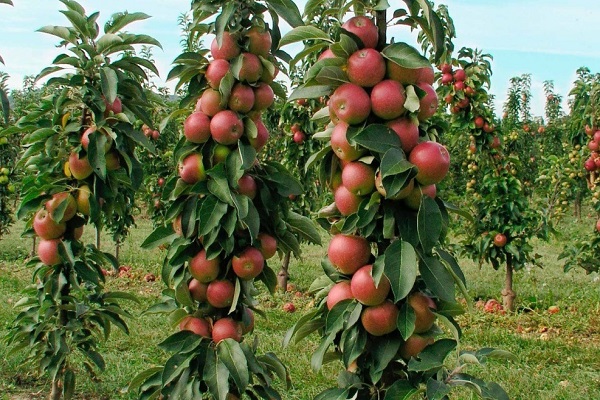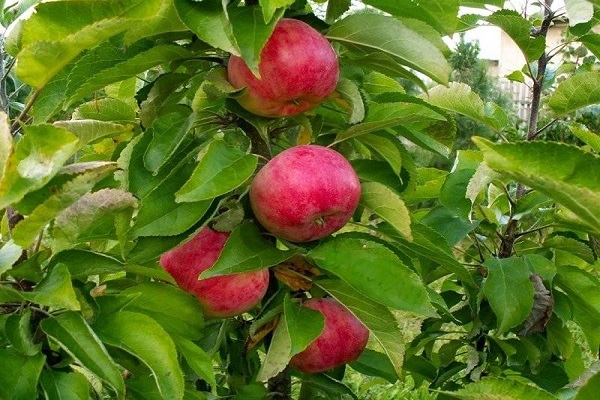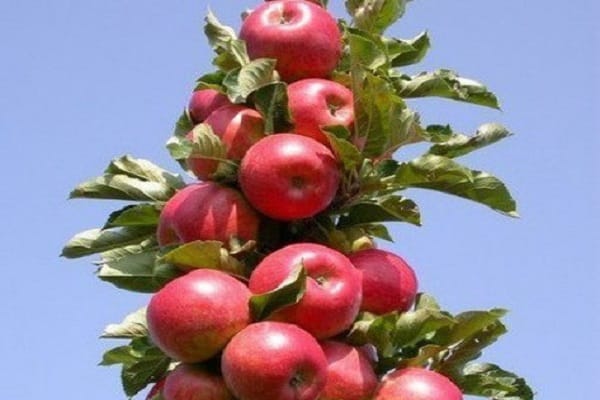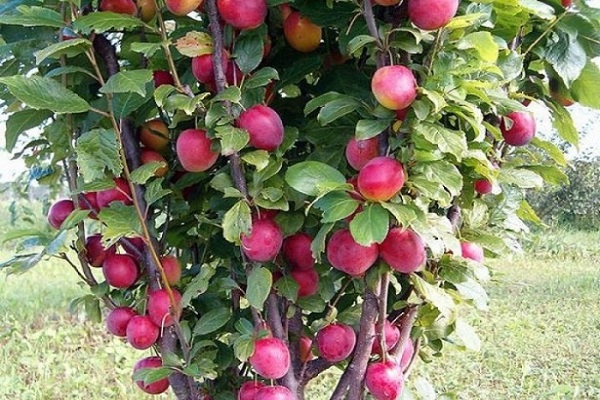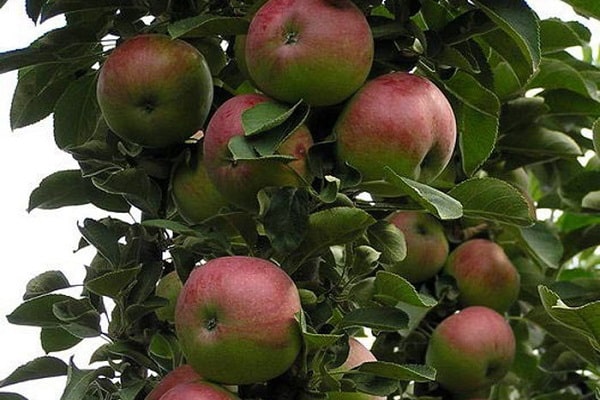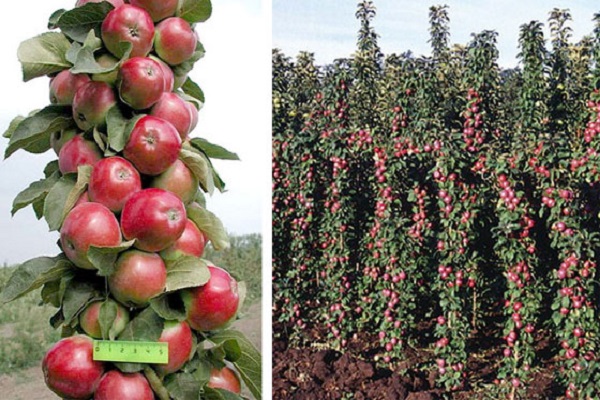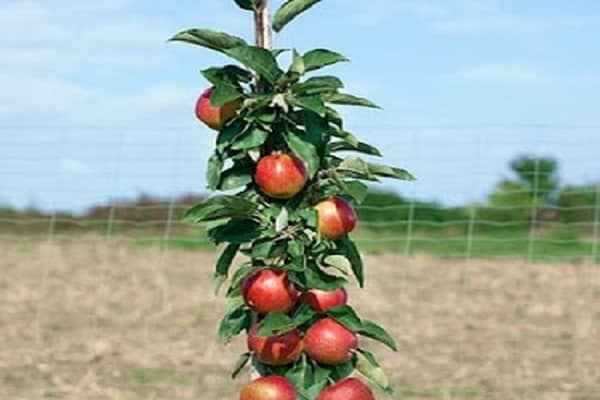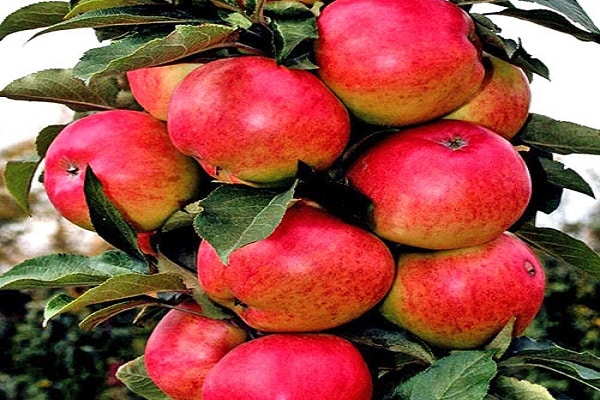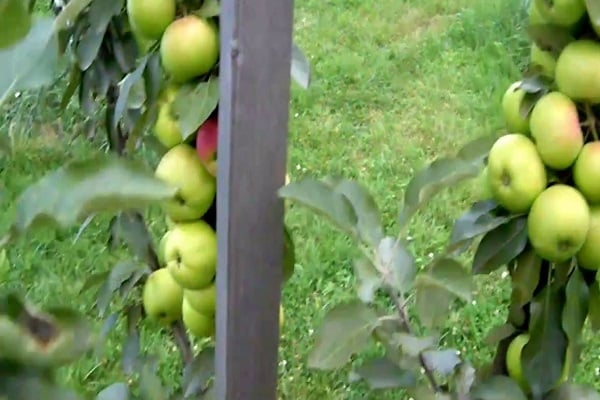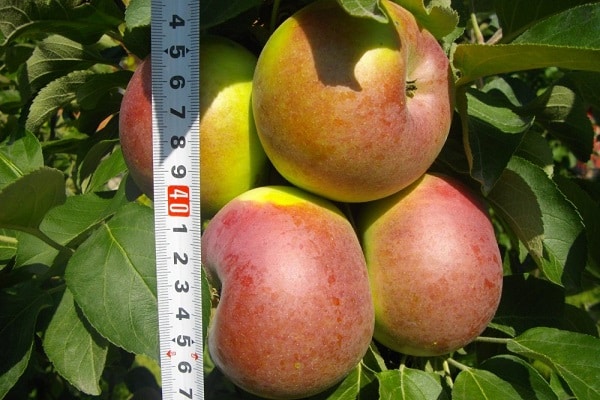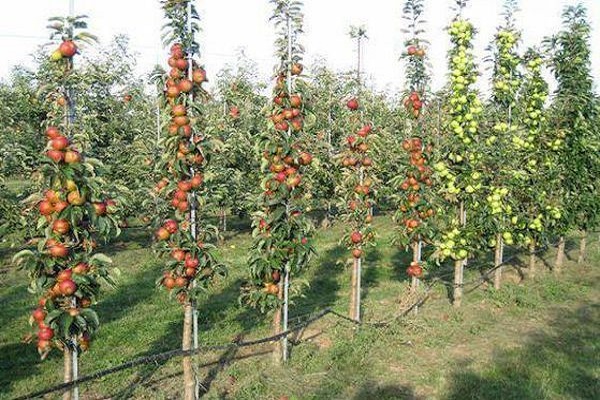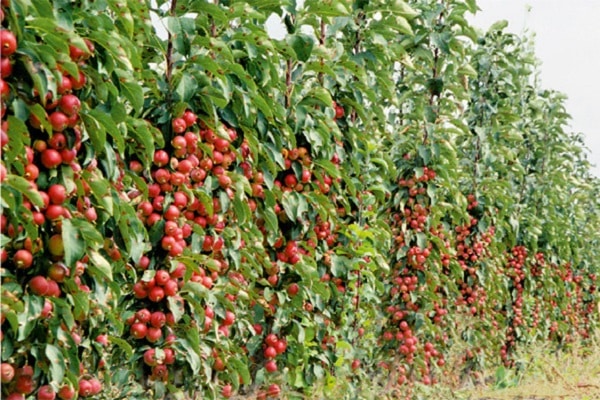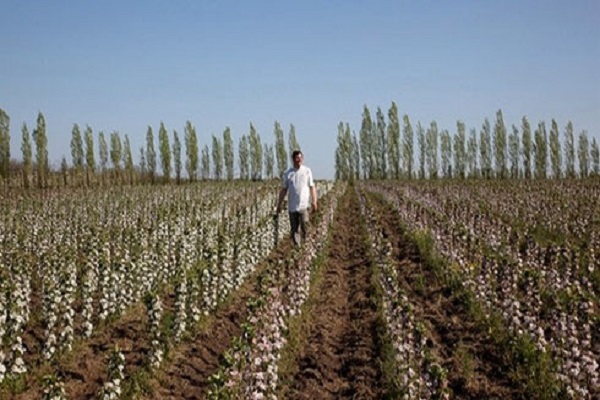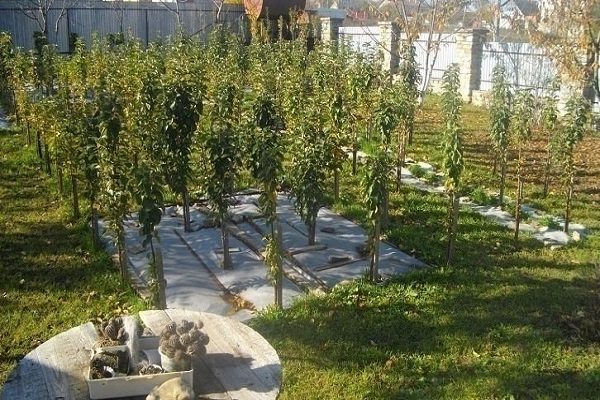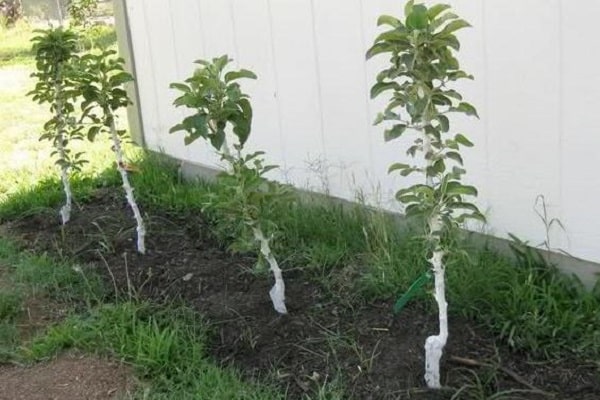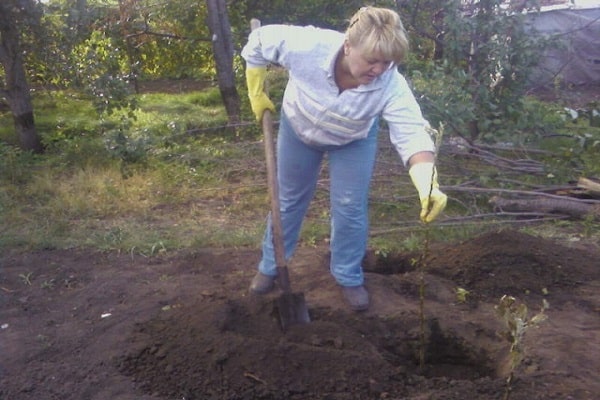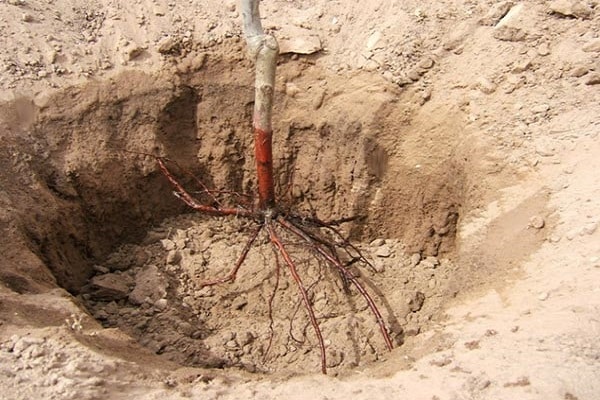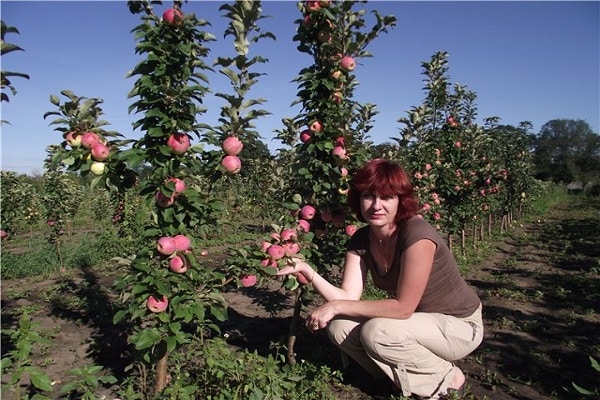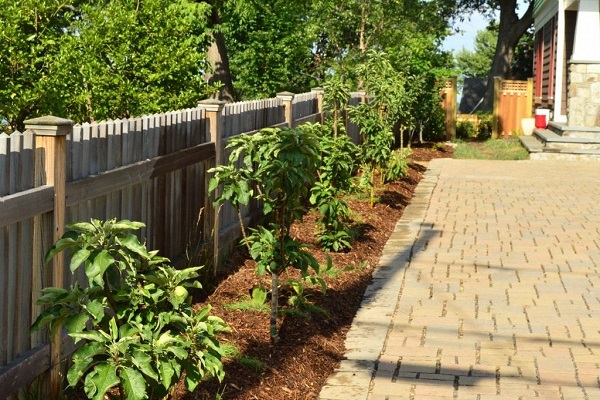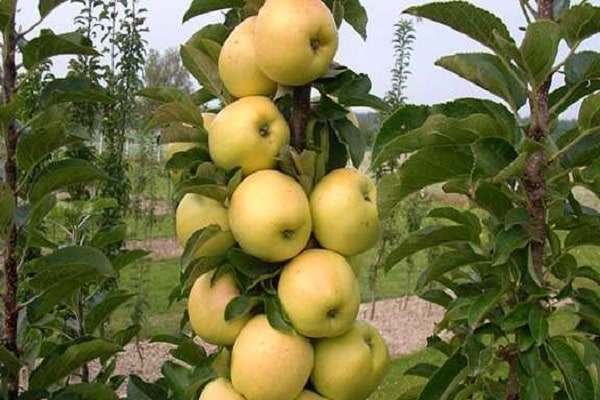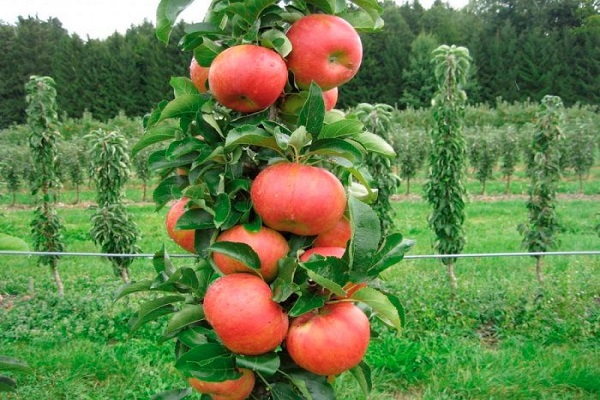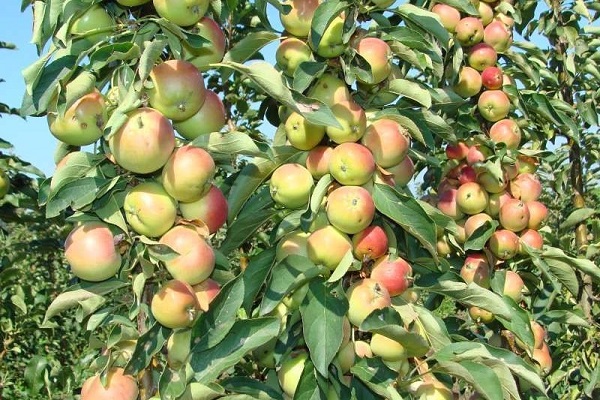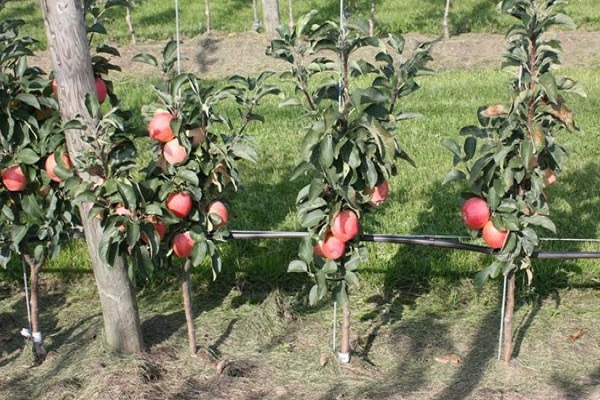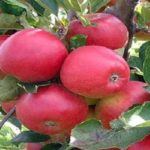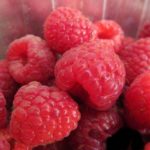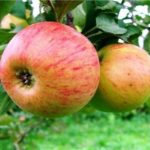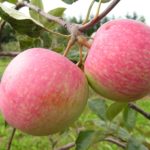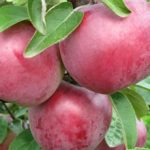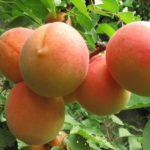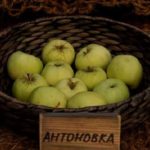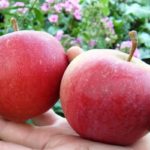The columnar apple tree Arbat was the first to be bred by breeders. One of the advantages is its compactness. The seedling grows vertically upward and practically does not create lateral shoots. Five trees can easily replace an ordinary apple tree. The trees produce a rich harvest that is easy to harvest.
- General description of the variety
- Trunk height
- Foliage
- Fruit
- Root
- Types of rootstocks
- On a dwarf rootstock
- Columnar
- How to distinguish dwarf from ordinary
- Apple tree Arbat - characteristics
- Crown formation
- Flower pollination
- Fruit
- Yield frequency
- Preparing trees for winter
- Possible diseases and pests
- Tasting properties
- Content of nutrients and microelements in Arbat apple
- Advantages and disadvantages
- Tree planting
- Ground work
- Where to plant
- Preparing the soil
- Pit dimensions
- Distance between trees
- Selection of seedlings
- Landing dates
- Disembarkation process
- Growing an apple tree
- Tree care
- Trimming
- Care during flowering
- Irrigation works
- Protection against diseases
- Pest Control
- Apple tree fertilizer
- Selection of pollinator variety
- Fruiting
- Selection
- Harvest and storage
- Harvesting
- Storage and transportation of fruits
- What can be made from apples
- We grow in the regions
- Tatarstan
- Middle Volga region
- Southern regions
- Bashkiria
General description of the variety
The first fruits can be obtained already in the year of planting, but it is better to remove all inflorescences and not overload the tree. A standard apple tree takes at least 4 years to bear fruit.
Trunk height
The apple tree can reach a height of three meters. The crown does not branch and has a decorative appearance.
Foliage
The leaves are densely located along the trunk. Growths are also visible, in the center of which there is a fruit bud.
Fruit
The tree begins to bear fruit from the first year of growth. Five-year-old seedlings bear fruit abundantly and produce up to 20 kg of fruit.
The collection period falls at the end of August, beginning of September. Can be stored fresh until December. After picking, apples should rest, this improves their taste.
Root
The root system develops fully by the fifth year of growth.
Types of rootstocks
Tree grafting can be done on different rootstocks.
On a dwarf rootstock
Gardeners practice grafting the Arbat apple tree onto a dwarf rootstock. She successfully takes root and develops.
Columnar
It is a dwarf grown from seeds.
How to distinguish dwarf from ordinary
A dwarf tree has one common trunk and no side shoots. The leaves just grow on the trunk.Unlike standard ones, it bears fruit in the first year.
Apple tree Arbat - characteristics
If we consider this dwarf tree, it has its own characteristics and characteristics.
Crown formation
These seedlings lack a crown. Proper pruning allows you to form a more reliable trunk.
Flower pollination
The variety is classified as self-pollinating. You can achieve a good harvest if there are other apple trees nearby.
Fruit
The fruits are medium in size and have a glossy pink color. The pulp is yellowish. The taste of the apple is sweet and sour. Weight is approximately 110 grams.
Yield frequency
The yield of a tree does not depend on the period. The tree produces a harvest every year. All nutrients go towards the formation and growth of apples.
Preparing trees for winter
Preparation includes the following steps:
- Applying fertilizers to saturate them with useful substances and successfully survive the winter.
- Antiparasitic treatment and spraying against various diseases.
- Tree pruning as needed.
Possible diseases and pests
Most often the tree is affected codling moth. It is located under the fruit bark and successfully overwinters, and in the spring it attacks the ovary. Dwarf apple trees It is easier to treat pests by spraying, because they are small in size.
The apple flower beetle successfully overwinters under the bark and appears until the buds open. Harms the buds by eating them. You can cope with it by treating it with special medications.
You can fight psyllids and aphids by spraying with an ash solution or tobacco infusion.
Tasting properties
The shape of the fruits is round and slightly elongated. The pulp is creamy. The taste is sweet and sour and very juicy.
Content of nutrients and microelements in Arbat apple
Apples are rich in iron and also contain malic, citric and tartaric acid. Contains volatile fatty acids.
Advantages and disadvantages
Main advantages:
- compactness;
- slow growth;
- ripening in late summer;
- the harvest is given every year;
- bear fruit from the first year;
- high frost resistance;
- beautiful appearance;
- resistance to fungal diseases.
Flaws:
- short shelf life;
- when the tree is overloaded, the fruits become smaller;
- poor transportability;
- The short lifespan of the tree is 15 years.
Tree planting
For the proper growth and development of a seedling, it must be planted correctly.
Ground work
It is better to prepare for planting an apple tree in the autumn. Dig a hole and fill it with fertile mixture.
Where to plant
Sunny, elevated areas are suitable for planting. Melt water will not collect around the trunk in spring. If the soil is damp, drainage is necessary.
Preparing the soil
It is important to take care of fertile soil. The ideal option is humus, compost or other fertilizers.
Pit dimensions
The hole must be of the appropriate size:
- width - 80 cm;
- length - 80 cm;
- depth - 40 cm.
Add the necessary fertilizer and mix with the soil. Place the tree for testing, the roots should be freely located in the space. If the tree is too crowded, deepen the seedling a little.
Distance between trees
There are two landing schemes:
- In compacted rows, where the distance between seedlings is 40 cm. And between the rows - 2 meters.
- A 1 x 1 meter planting pattern is also practiced.
Selection of seedlings
Seedlings must be selected that are strong and have a developed root system.
Landing dates
Planting is done either in the spring before the buds open, or in the fall after the leaves fall and the buds form.
Disembarkation process
Before planting, the root system is soaked for 2 hours.
Growing an apple tree
To obtain a good harvest, an apple tree requires proper care.
Tree care
For a bountiful harvest, it is important to organize proper care, which should correspond to seasonality.
Trimming
It is carried out in the spring until the sap moves through the branches and the buds swell. These are preventive measures that allow you to remove damage from the tree that appeared in winter. Also, with the help of pruning, you can remove overwintering parasites and foci of infection.
Care during flowering
In the first year after planting, all flowers are removed from the tree. The seedling's strength must go to rooting.
In subsequent years, the harvest must be rationed so as not to overload the tree. In the second year, up to ten buds should be left. Next, gradually accustom the tree to the loads.
Irrigation works
The seedling requires abundant watering. If the summer is not dry, the area around the trunk is irrigated twice a week. Mulching the soil will help retain moisture.
Watering is very important after planting; it is carried out daily.
Protection against diseases
To protect against diseases, it is necessary to treat the tree by spraying. As a preventive measure against diseases, they are sprayed with copper sulfate and Bordeaux mixture.
Pest Control
To combat pests, apple trees are treated with chemicals in early spring. Suitable products are “Fufanon”, “Inta-Ts-M”.
Apple tree fertilizer
At the beginning of summer, fertilizing with mineral fertilizers is carried out. In the fall, potassium, nitrogen and organic fertilizing is applied. For regular feeding, chicken droppings and manure are used in the form of watering. The fertilizer is soaked in water, infused, and then the seedling is watered.
Selection of pollinator variety
The Antonovka variety is used as a pollinator.
Fruiting
Arbat is distinguished by early fruiting. Fruit ripening begins at the end of summer. Fruiting lasts up to 15 years.
Selection
The variety was bred by Moscow breeders, namely Kichina.
Harvest and storage
In autumn, the most long-awaited stage begins - harvesting.
Harvesting
The harvest can be harvested in late summer, early autumn. After picking, you need to let the apples rest.
Storage and transportation of fruits
Apples are stored in cool rooms until December. Storage longer than the established period leads to loss of taste and beneficial properties. They do not tolerate transportation well due to increased vulnerability.
What can be made from apples
Apples are consumed both raw and prepared: compotes, preserves, jams.
We grow in the regions
A seedling may behave differently depending on the region.
Tatarstan
After experiments, gardeners found that this variety is ideal for growing in Tatarstan. On the positive side, the region enjoys good snow cover. When the air temperature is -40, the soil temperature is -10 degrees.
Middle Volga region
Also suitable for dwarf trees up to three meters high. In the harsh conditions of the region, the soil temperature is -15 in winter, and up to +60 degrees in summer. The soil has an average degree of fertility, while Arbat grows and bears fruit well.
Southern regions
The southern regions are the most suitable, since the climate there is less harsh, and dwarf trees grow successfully here.
Bashkiria
It is also a region where apple tree planting is practiced. Preference is given to early-bearing varieties that bear fruit earlier.

